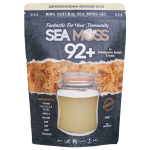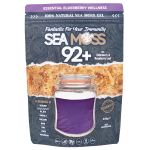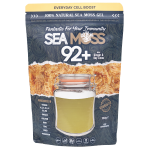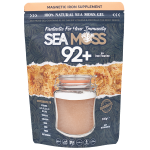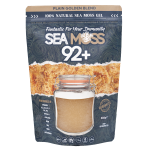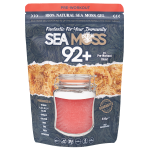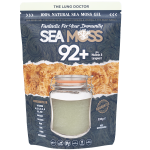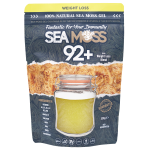VITAMIN B2
VITAMIN B2
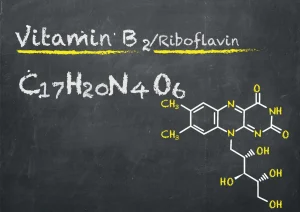
What is vitamin B2?
Vitamin B2, also known as riboflavin, is an essential micronutrient that plays a crucial role in numerous physiological processes. Once consumed, riboflavin undergoes enzymatic conversion to its active forms, flavin mononucleotide (FMN) and flavin adenine dinucleotide (FAD). These coenzymes participate in redox reactions, acting as electron carriers in metabolic pathways involved in energy production.
Riboflavin is integral to the metabolism of carbohydrates, fats, and proteins, aiding in their breakdown and facilitating the release of energy. It also contributes to the synthesis of other important compounds, such as niacin, which is essential for DNA repair and cell growth.
As an antioxidant, riboflavin helps protect cells from oxidative stress by neutralising harmful free radicals. This role is particularly important for maintaining the health of the skin, eyes, and mucous membranes.
Riboflavin plays a vital role in energy metabolism, antioxidant defence, and the activation of other essential nutrients. Its involvement in numerous physiological processes underscores the importance of maintaining sufficient levels through dietary sources or supplementation to support optimal bodily functions.
Vitamin B2, or riboflavin, has demonstrated significant relationships with specific health conditions. A 2014 study reported that riboflavin supplementation at a dose of 2 micrograms can reduce the risk of cataracts, particularly in individuals with malnutrition. Adequate riboflavin intake is crucial for maintaining eye health and may play a role in lowering the risk of this age-related eye condition.
In the realm of migraines, research conducted in Belgium found that taking 400 mg of riboflavin per day can effectively reduce the frequency of migraine attacks. Participants taking riboflavin experienced, on average, at least two fewer migraine attacks per month compared to those not taking riboflavin. This suggests that riboflavin is important in managing migraines.
Vitamins or minerals that enhance the absorption of vitamin B2 include:
- Vitamin B6 (Pyridoxine): Vitamin B6 is involved in various metabolic processes, including those related to riboflavin (vitamin B2) metabolism. It can aid in the conversion of riboflavin to its active coenzyme forms.
- Folate (Vitamin B9): Folate plays a role in riboflavin metabolism and can support the activation of riboflavin to its coenzyme forms.
- Iron: Iron is a mineral that can enhance the absorption of riboflavin from the diet. It can be particularly important for individuals with iron deficiency or those at risk of it.
- Magnesium: Magnesium is another mineral that can support riboflavin utilisation. Adequate magnesium levels are necessary for various enzymatic reactions, including those involving B-vitamins.
- Zinc: Zinc is involved in various metabolic processes, and it can indirectly impact riboflavin metabolism.
Recommended Products
DIVE DEEPER
How much does the body need per day?
Age |
Male |
Female |
|---|---|---|
|
1 to 3 years: |
0.5 mg |
0.5 mg |
|
4 to 8 years: |
0.6 mg |
0.6 mg |
|
9 to 13 years: |
0.9 mg |
0.9 mg |
|
14 to 18 years old: |
1.2 mg |
1.0 mg |
|
19 to 50 years: |
1.2 mg |
1.0 mg |
|
51 years and over: |
1.2 mg |
1.0 mg |
|
During pregnancy: |
|
1.4 mg |
|
Lactation |
|
1.4 mg |



